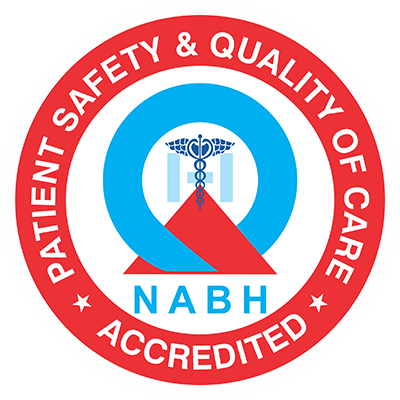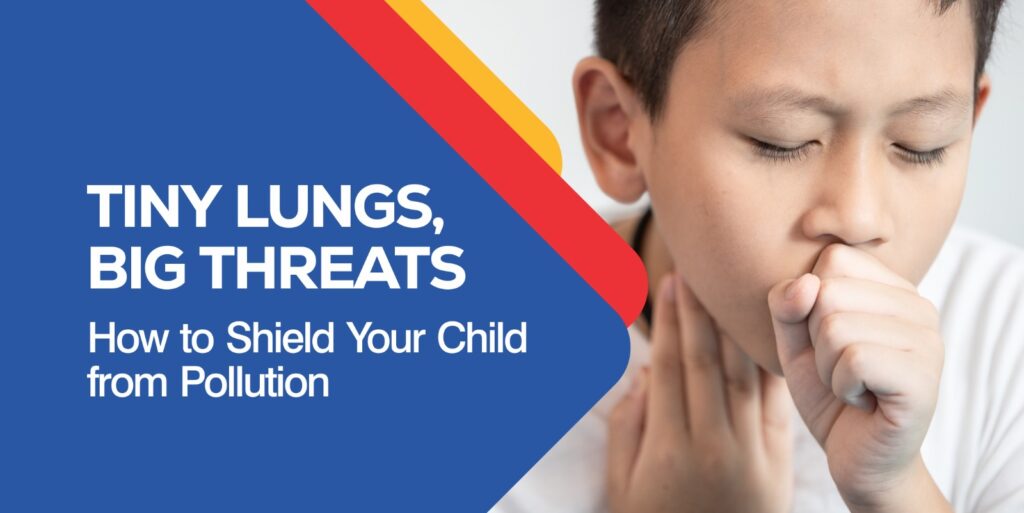Six-year-old Aryan loved playing outdoors. Getting him to come back indoors was a task his mother didn’t look forward to! Over the last few months though, his parents noticed frequent bouts of coughing and wheezing. Aryan went out less and less, complaining of tiredness. Concerned, they consulted a Pediatrician who directed them to a Pediatric Pulmonologist. He diagnosed Aryan with asthma acquired from exposure to air pollution. His family, unaware of the dangerous particulate matter levels in their area, hadn’t considered air pollution a serious threat until now. Aryan’s case is not isolated; it is a growing concern among urban families worldwide.
Air Pollution takes a toll on children’s health
Air pollution is a silent killer, affecting millions globally. According to the World Health Organization (WHO), 93% of children worldwide breathe air that exceeds pollution limits set by health standards. In India, the scenario is even more alarming. A 2023 report revealed that air pollution contributes to 1 in 6 deaths in the country, and children are among the most vulnerable groups.
In urban India, pollutants like PM2.5 and nitrogen dioxide (NO2) are at critical levels. A study published by The Lancet showed that over 60% of Indian children living in polluted cities suffer from reduced lung capacity. Additionally, air pollution is linked to developmental delays, lower cognitive performance, and a higher risk of respiratory and cardiovascular diseases in children.
How Air Pollution affects our young ones
Children are uniquely susceptible to air pollution because:
- Children have higher respiratory rates: They breathe more frequently than adults, increasing exposure to harmful toxins
- Children’s organs are still developing: Their lungs and immune systems are still maturing, making them less equipped to filter out pollutants
- Children spend more time outdoors: Outdoor activities in and after school increases children’s exposure to airborne pollutants
Steps parents must take to protect children from air pollution
Parents play a crucial role in mitigating the effects of air pollution on their children. Here are a few practical measures:
- Monitor air quality:
* Use apps or websites to track pollution levels in your area
* Avoid outdoor activities during peak pollution hours - Create a safe indoor environment:
* Use air purifiers at home to reduce indoor pollutants
* Avoid burning incense or candles, which can release harmful particles - Promote healthy habits:
* Encourage children to eat antioxidant-rich foods, such as fruits and vegetables, to strengthen their immune system
* Teach proper hand hygiene to prevent respiratory infections
Air pollution is a growing concern, but with the right strategies and trusted healthcare support, parents can significantly reduce its impact on their children.
BBR Hospitals, Hyderabad, is well-positioned to lend comprehensive healthcare support in this matter. BBR Hospital’s team of expert Pediatric Pulmonolgists are equipped with the latest knowledge and tools to diagnose and manage respiratory conditions in children effectively.
From advanced diagnostic tools to cutting-edge air purification systems in its facilities, BBR clearly prioritizes every child’s well-being. With a holistic approach to healing, BBR Hospitals’ team focuses not only on treating the illness but also on educating parents about preventive measures.
Air pollution is indeed a critical healthcare challenge in these times, particularly for children, as their developing bodies and immune systems are highly susceptible to its effects. From respiratory diseases to long-term cognitive impairments, the health consequences of air pollution are profound and demand urgent attention. Staying aware and taking preventive measures will help parents in shielding their children from the
ill-effects of air pollution.



